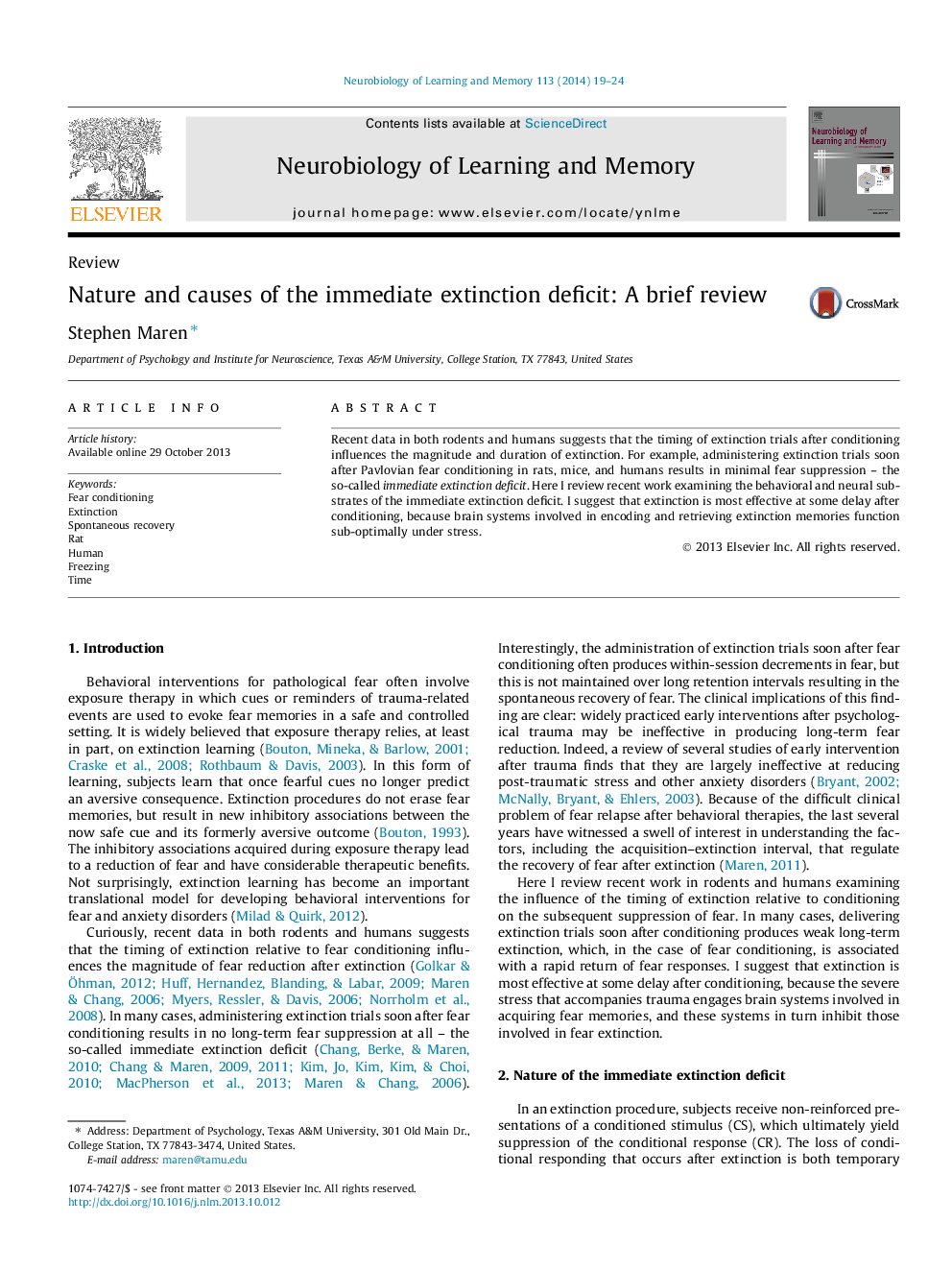| Article ID | Journal | Published Year | Pages | File Type |
|---|---|---|---|---|
| 936537 | Neurobiology of Learning and Memory | 2014 | 6 Pages |
•The timing of extinction after conditioning determines the magnitude and longevity of response loss.•Delivering extinction trials minutes to hours after conditioning often leads to an ‘immediate extinction deficit’.•The ‘immediate extinction deficit’ may be mediated by stress-induced impairments in medial prefrontal cortical function.
Recent data in both rodents and humans suggests that the timing of extinction trials after conditioning influences the magnitude and duration of extinction. For example, administering extinction trials soon after Pavlovian fear conditioning in rats, mice, and humans results in minimal fear suppression – the so-called immediate extinction deficit. Here I review recent work examining the behavioral and neural substrates of the immediate extinction deficit. I suggest that extinction is most effective at some delay after conditioning, because brain systems involved in encoding and retrieving extinction memories function sub-optimally under stress.
